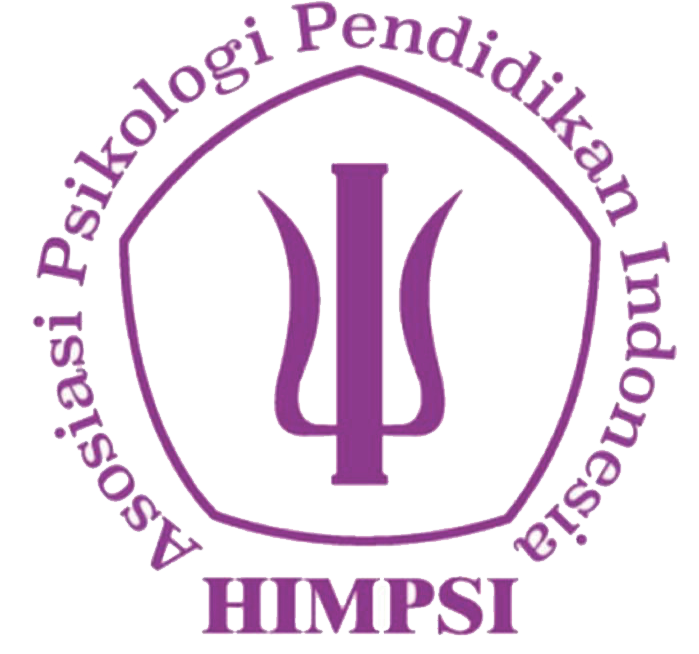Mediating Role of Infidelity-related Posttraumatic Symptoms in the Relationship Between Forgiveness and Psychological Health Concerns
Abstract
Infidelity is one of the most common concerns in romantic relationships and is deemed morally unacceptable. Such events can be disruptive and may lead to negative consequences on well-being of betrayed individuals. This study examined the prevalence of infidelity-related posttraumatic symptoms and psychological health concerns (i.e., depression, anxiety, stress) among young adults who experienced infidelity by their partners. It also investigated whether forgiveness reduces the likelihood of psychological health concerns through lower levels of infidelity-related posttraumatic symptoms. It utilized a cross-sectional, predictive nonexperimental quantitative research design with n = 162 young adults, ages 19 – 40, who experienced being betrayed in a romantic relationship. The results showed that most of the respondents (93.21%) exceeded the cut-off score for probable post-traumatic stress disorder (PTSD), have severe depressive symptoms, anxiety symptoms, and stress. The respondents in this study reported a moderate degree of forgiveness. While controlling demographics and relationship history, the partial least squares structural equation modeling analysis showed that high degree of forgiveness tends to decrease psychological health concerns through lower levels of infidelity-related posttraumatic symptoms. The findings of this study highlighted the role of forgiveness in mental health outcomes which may lead to psychotherapeutic approaches incorporating this construct.
Keywords
Full Text:
PDFReferences
American Psychiatric Association. (2022). Diagnostic and statistical manual of mental disorders In Diagnostic and Statistical Manual of Mental Disorders (5th ed.).
https://doi.org/10.1176/appi.books.9780890425787
Archuleta, K. L. (2013). Couples, money, and expectations: negotiating financial management roles to increase relationship satisfaction. Marriage and Family Review, 49(5), 391–411. https://doi.org/10.1080/01494929.2013.766296
Azhar, A., Abbas, J., Wenhong, Z., Akhtar, T., & Aqeel, M. (2018). Linking infidelity stress, anxiety and depression: evidence from Pakistan married couples and divorced individuals. International Journal of Human Rights in Healthcare, 11(3), 214–228.
https://doi.org/10.1108/IJHRH-11-2017-0069
Bae, S. M., Hyun, M. H., & Ra, Y. S. (2015). Mediating effects of forgiveness and emotion-focused coping on post-traumatic stress disorder symptoms caused by physical injury and perceived threat. Asia-Pacific Psychiatry, 7(2), 164–172.
https://doi.org/10.1111/appy.12142
Bozoyan, C., & Schmiedeberg, C. (2022). What is Infidelity?A Vignette study on norms and attitudes toward infidelity. Journal of Sex Research, 1–10. https://doi.org/10.1080/00224499.2022.2104194
Campbell, S. B., & Renshaw, K. D. (2018). Posttraumatic stress disorder and relationship functioning: A comprehensive review and organizational framework. Clinical Psychology Review, 65, 152–162. https://doi.org/10.1016/j.cpr.2018.08.003
Cano, A., & O’Leary, K. D. (2000). Infidelity and separations precipitate major depressive episodes and symptoms of nonspecific depression and anxiety. Journal of Consulting and Clinical Psychology, 68(5), 774–781. https://doi.org/10.1037/0022-006X.68.5.774
Cerci, D., & Colucci, E. (2018). Forgiveness in PTSD after man-made traumatic events: A systematic review. Traumatology, 24(1), 47–54. https://doi.org/10.1037/trm0000130
Clift, R. J., & Maratos, F. (2020). An investigation into trauma, active coping and depression. Journal of European Psychology Students, 11(1), 21–31. https://doi.org/10.5334/jeps.489
Curtis, R., Likis-Werle, E., & Shelton, T. (2021). counseling clients who have experienced undisclosed infidelity. Family Journal, 29(4), 457–464. https://doi.org/10.1177/10664807211005066
Dean, M., & Bergner, R. (2018). Infidelity discovery as a traumatic event: An empirical investigation.
Dominguez, J. (2015). Pagpapalaya among school helping professionals. Canadian International Journal of Social Science And Education, 2356-847X., 230.
Enright, R. D. (1996). Counseling within the forgiveness triad: On forgiving, receiving forgiveness, and self‐forgiveness. Counseling and Values, 40(2), 107–126.
https://doi.org/10.1002/j.2161-007X.1996.tb00844.x
Enright, R. D., & Fitzgibbons, R. P. (2000). Helping clients forgive: An empirical guide for resolving anger and restoring hope. In Helping clients forgive: An empirical guide for resolving anger and restoring hope. American Psychological Association. https://doi.org/10.1037/10381-000
Enright, R. D., Freedman, S., & Rique, J. (1998). The psychology of interpersonal forgiveness. In R.D. Enright & J. North (Eds.), Exploring forgiveness. University of Wisconsin Press.
Feist, G., Roberts, T., & Feist, J. (2021). Theories of personality (10th ed.). McGraw Hill Education
Fife, S. T., Weeks, G. R., & Stellberg-Filbert, J. (2013). Facilitating forgiveness in the treatment of infidelity: An interpersonal model. Journal of Family Therapy, 35(4), 343–367. https://doi.org/10.1111/j.1467-6427.2011.00561.x
Fornell, C., & Larcker, D. F. (1981). Evaluating Structural Equation Models with Unobservable Variables and Measurement Error. Journal of Marketing Research, 18(1), 39–50. https://doi.org/10.1177/002224378101800104
Gençoğlu, C., Şahin, E., & Topkaya, N. (2018). General self-efficacy and forgiveness of self, others, and situations as predictors of depression, anxiety, and stress in university students. Kuram ve Uygulamada Egitim Bilimleri, 18(3), 605–626. https://doi.org/10.12738/estp.2018.3.0128
Glass, S. P., & Wright, T. L. (2017). The handbook of divorce and relationship dissolution. Routledge. Goldstein, L. A., Dinh, J., Donalson, R., Hebenstreit, C. L., &
Maguen, S. (2017). Impact of military trauma exposures on posttraumatic stress and depression in female veterans. Psychiatry Research, 249, 281–285. https://doi.org/10.1016/j.psychres.2017.01.009
Gottman, J. M., & Levenson, R. W. (2002). A two-factor model for predicting when a couple will divorce: Exploratory analyses using 14-year longitudinal data. Family Process, 41(1), 83–96. https://doi.org/10.1111/j.1545-5300.2002.40102000083.x
Griffin, B. J., Worthington, E. L., Lavelock, C. R., Wade, N. G., & Hoyt, W. T. (2015). Forgiveness and mental health. Forgiveness and Health, 77–90. https://doi.org/10.1007/978-94-017-9993-5_6
Grøntvedt, T. V., Grøntvedt, T. V., Kennair, L. E. O., & Bendixen, M. (2020). Breakup likelihood following hypothetical sexual or emotional infidelity: perceived threat, blame, and forgiveness. Journal of Relationships Research, 11. https://doi.org/10.1017/jrr.2020.5
Hair, J., Hult, G. T., Ringle, C., & Sarstedt, M. (2022). A primer on partial least squares structural equation modeling. SAGE Publication, 46(1–2), 184–185. https://doi.org/10.1016/j.lrp.2013.01.002
Hayes Andrew F. (2018). Introduction to mediation, moderation, and conditional process analysis - model numbers. Guilford Press (2nd ed., Vol. 46, Issue 3). New York, NY.
Herzog, J., Fleming, T., Ferdik, F., & Durkin, D. W. (2016). The association between secondary trauma and mental health outcomes among adolescents: Findings from a nationally representative cross-sectional survey. Traumatology, 22(4), 307–313.
https://doi.org/10.1037/trm0000099
Johnson, B. (2001). Toward a new classification of nonexperimental quantitative research. Educational Researcher, 30(2), 3-13. https://doi.org/10.3102/0013189X030002003
Knopp, K., Scott, S., Ritchie, L., Rhoades, G. K., Markman, H. J., & Stanley, S. M. (2017). Once a cheater, always a cheater? Serial infidelity across subsequent relationships. Archives of Sexual Behavior, 46(8), 2301–2311. https://doi.org/10.1007/s10508-017-1018-1
Kock, N., & Hadaya, P. (2016). Minimum sample size estimation in PLS-SEM: The inverse square root and gamma-exponential methods. Information Systems Journal, 28(1), 227–261. https://doi.org/10.1111/isj.12131
Lavner, J. A., Karney, B. R., & Bradbury, T. N. (2014). Relationship problems over the early years of marriage: Stability or change? Journal of Family Psychology, 28(6), 979–985. https://doi.org/10.1037/a0037752
Lonergan, M., Brunet, A., Rivest-Beauregard, M., & Groleau, D. (2020). Is romantic partner betrayal a form of traumatic experience? A qualitative study. Stress and Health, 37(1), 19– 31. https://doi.org/10.1002/smi.2968
Lovibond, P. F., & Lovibond, S. H. (1995). The structure of negative emotional states: Comparison of the Depression Anxiety Stress Scales (DASS) with the beck depression and anxiety inventories. Behaviour Research and Therapy, 33(3), 335–343. https://doi.org/10.1016/0005-7967(94)00075-U
Mcleod, S. (2007). Erik Erikson’s 8 stages of psychosocial development. Study Guides for Psychology Students - Simply Psychology
Moore, M. (2021). Long-term psychological effects of infidelity. Psych Central.
https://psychcentral.com/health/long-term-psychological-effects-of-infidelity
Nateghian, S., Dastgiri, S. S., & Mullet, E. (2015). Dispositional forgiveness and PTSD among iranian veterans of the 1980–1988 War. Journal of Loss and Trauma, 20(2), 123–130. https://doi.org/10.1080/15325024.2013.831262
Nolen-Hoeksema, S., & Morrow, J. (1991). A prospective study of depression and posttraumatic stress symptoms after a natural disaster: The 1989 Loma Prieta Earthquake. Journal of Personality and Social Psychology, 61(1), 115–121. https://doi.org/10.1037/0022- 3514.61.1.115
Ortman, D. C. (2005). Post infidelity stress disorder. Journal of Psychosocial Nursing and Mental Health Services, 43(10), 46–54.
Ozen, S., Dalbudak, E., & Topcu, M. (2018). The relationship of posttraumatic stress disorder with childhood traumas, personality characteristics, depression and anxiety symptoms in patients with diagnosis of mixed anxiety-depression disorder. Psychiatria Danubina, 30(3), 340–347. https://doi.org/10.24869/psyd.2018.340
Padmavathi, N., Sunitha, T., & Jothimani, G. (2013). Post-infidelity stress disorder. Indian Journal of Psychiatric, Nursing5(1). https://doi.org/10.4103/2231-1505.261777
Rasmussen, K. R., Stackhouse, M., Boon, S. D., Comstock, K., & Ross, R. (2019). Meta-analytic connections between forgiveness and health: the moderating effects of forgiveness-related distinctions. Psychology and Health, 34(5), 515–534.
https://doi.org/10.1080/08870446.2018.1545906
Ringle, Christian M. and Wende, Sven and Becker, & Jan-Michael. (2022). SmartPLS 4. Boenningstedt. In SmartPLS. http://www.smartpls.com
Rokach, A., & Chan, S. H. (2023). Love and infidelity: Causes and consequences. International Journal of Environmental Research and Public Health, 20(5), 3904.
https://doi.org/10.3390/ijerph20053904
Rokach, A., & Philibert-Lignières, G. (2015). Intimacy, loneliness and infidelity. The Open Psychology Journal, 8(1), 71–77. https://doi.org/10.2174/1874350101508010071
Roos, L. G., O’Connor, V., Canevello, A., & Bennett, J. M. (2019). Post-traumatic stress and psychological health following infidelity in unmarried young adults. Stress and Health, 35(4), 468–479. https://doi.org/10.1002/smi.2880
Roos, L., Kachmarik, J., & Bennett, J. M. (2021). Experiencing infidelity in the modern age: A longitudinal study of social media creeping and infidelity-related PTSD Trait mindfulness and emotional reactivity: Examining self-report and a caffeine manipulated emotional task View project. https://www.researchgate.net/publication/351234339
Russell, V. M., Baker, L. R., & McNulty, J. K. (2013). Attachment insecurity and infidelity in marriage: Do studies of dating relationships really inform us about marriage? Journal of Family Psychology, 27(2), 242–251. https://doi.org/10.1037/a0032118
Scuka, R. F. (2015). A clinician’s guide to helping couples heal from the trauma of infidelity. Journal of Couple and Relationship Therapy, 14(2), 141–168.
https://doi.org/10.1080/15332691.2014.953653
Shrout, M. R., & Weigel, D. J. (2020). Coping with infidelity: The moderating role of self-esteem. Personality and Individual Differences, 154, 109631.
https://doi.org/10.1016/j.paid.2019.109631
Snyder, D. K., Balderrama-Durbin, C., & Fissette, C. L. (2012). Treating infidelity and comorbid depression: A case study involving military deployment. Couple and Family Psychology: Research and Practice, 1(3), 213–225. https://doi.org/10.1037/a0029919
Squires, E. C. (2014). Moving beyond betrayal: how meaning-making and power promote forgiveness following infidelity. https://doi.org/https://curve.carleton.ca/82cc6014-32e8-48d5-a799-172a238b7d27
Team, J. A. S. P. (2023). JASP (Version 0.17.1. Computer software).
Thornton, V., & Nagurney, A. (2011). What is infidelity? Perceptions based on biological sex and personality. Psychology Research and Behavior Management, 4, 51–58. https://doi.org/10.2147/PRBM.S16876
Toussaint, L. L., Williams, D. R., Musick, M. A., & Everson, S. A. (2001). Forgiveness and health: Age differences in a u.s. probability sample. Journal of Adult Development, 8(4), 249–257. https://doi.org/10.1023/A:1011394629736
Tucker, J. R., Bitman, R. L., Wade, N. G., & Cornish, M. A. (2015). Defining forgiveness: Historical roots, contemporary research, and key considerations for health outcomes. Forgiveness and Health, 13–28. https://doi.org/10.1007/978-94-017-9993-5_2
Velasquez, P. E. (2012). To forgive, in time: An interpretative phenomenological analysis of the process of forgiveness after infidelity of six Filipinos.
Vossler, A., & Moller, N. P. (2014). “The relationship past can’t be the future”: Couple counsellors’ experiences of working with infidelity. Sexual and Relationship Therapy, 29(4), 424–435. https://doi.org/10.1080/14681994.2014.924619
Warach, B., Josephs, L., & Gorman, B. S. (2018). Pathways to infidelity: The roles of self-serving bias and betrayal trauma. Journal of Sex and Marital Therapy, 44(5), 497–512. https://doi.org/10.1080/0092623X.2017.1416434
Weathers, F. W., Litz, B. T., Keane, T. M., Palmieri, P. A., Marx, B. P., & Schnurr, P. P. (2013). The PTSD checklist for DSM-5 (PCL-5). In National Center for PTSD (Vol. 5, Issue August, p.2002).https://www.ptsd.va.gov/professional/assessment/adult-sr/ptsdchecklist.asp/ptsd-checklist.asp
Webb, J. R., Toussaint, L., & Conway-Williams, E. (2012). Forgiveness and health: Psychospiritual integration and the promotion of better healthcare. Journal of Health CareChaplaincy, 18(1–2), 57–73. https://doi.org/10.1080/08854726.2012.667317
Weinberg, M., Gil, S., & Gilbar, O. (2014). Forgiveness, coping, and terrorism: Do tendency toforgive and coping strategies associate with the level of posttraumatic symptoms of injured victims of terror attacks? Journal of Clinical Psychology, 70(7), 693–703.https://doi.org/10.1002/jclp.22056
Weir, K. (2017). Forgiveness can improve mental and physical health. In Monitor on Psychology(Vol. 48, Issue 1). American Psychological. Association.
Witvliet, C. van O., Van Tongeren, D. R., & Root Luna, L. (2015). Measuring forgiveness in healthrelated contexts. Forgiveness and Health, 43–58. https://doi.org/10.1007/978-94-017-
9993-5_4
DOI: https://doi.org/10.18860/psikoislamika.v20i2.23871

This work is licensed under a Creative Commons Attribution-NonCommercial-ShareAlike 4.0 International License.


------------------------------------------------------------------------------------------

pSIKOISLAMIKA by http://ejournal.uin-malang.ac.id/index.php/psiko is licensed under a Creative Commons Attribution-NonCommercial-ShareAlike 4.0 International License.



.jpg)


.jpg)





